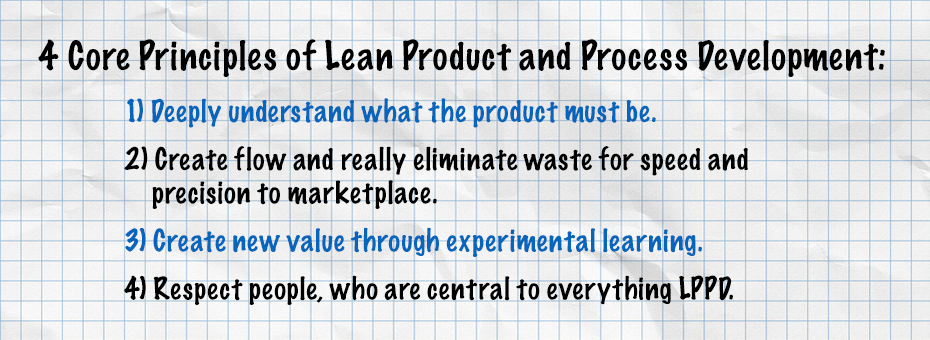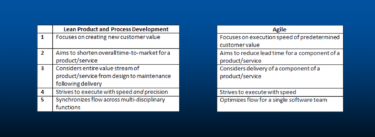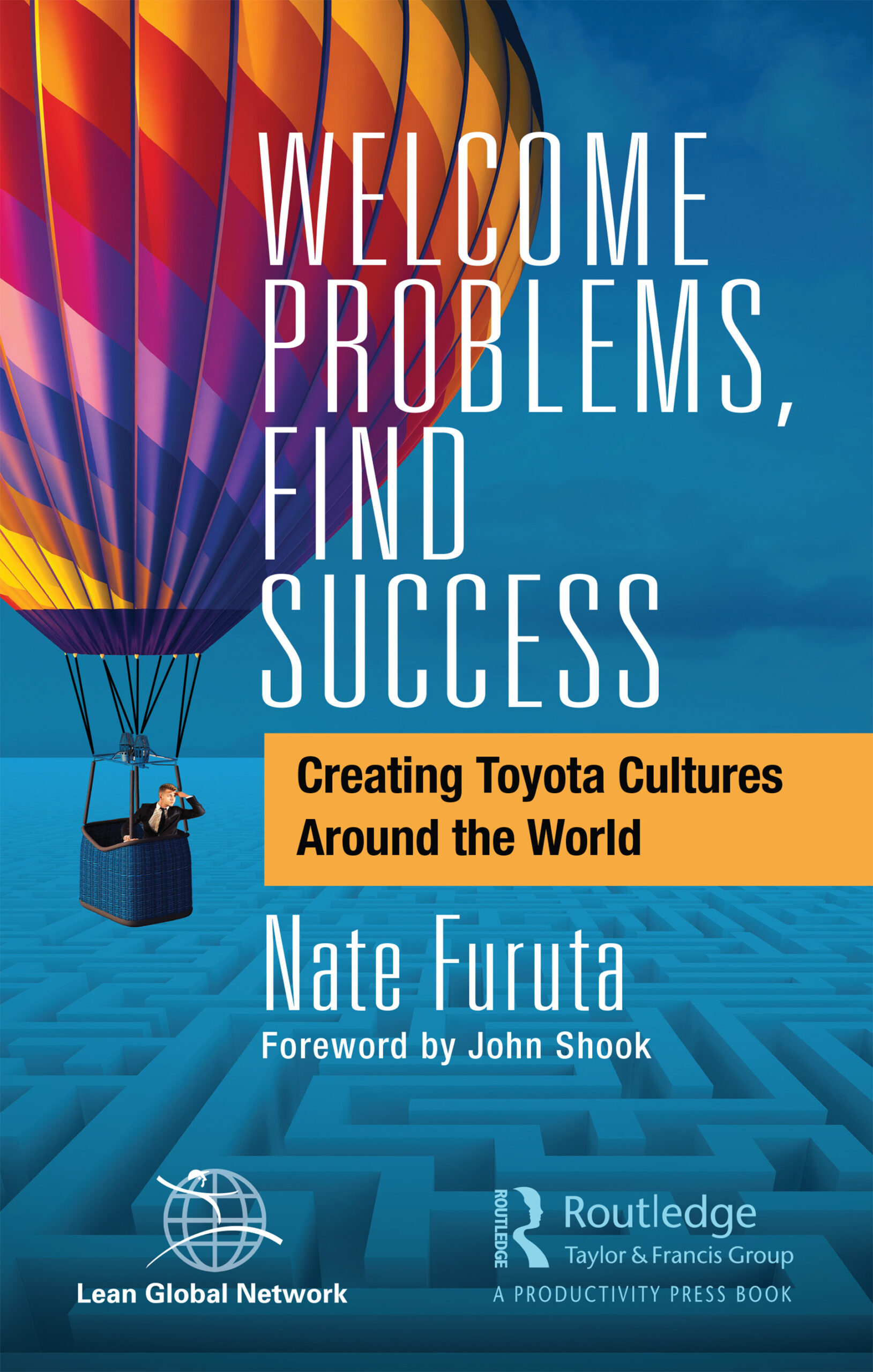The ability to consistently create “insanely great” products, as Steve Jobs would say, is the ultimate competitive advantage.
But many if not most companies struggle with developing profitable products and services on time with the best quality and least waste. Lean product and process development or LPPD is a powerful set of principles and practices that will help any company transform its development capability.
At the 2019 Designing the Future Summit, John Drogosz and Katrina Appell, coaches with the Lean Enterprise Institute’s lean product and process development initiative, talked to LEI Communications Director Chet Marchwinski about LPPD’s core principles, some critical techniques, and benefits you can expect.
Q: What are the core principles of Lean Product and Process Development?
John Drogosz: There are actually four core principles that we start with, the first one is to deeply understand what the product must be. Otherwise, all the rest is truly waste. The second part then is to create flow and really eliminate waste to get speed and precision in bringing that product to the marketplace.
Katrina Appell: The third principle is creating new value. When we’re creating new products, we have to create new value or we wouldn’t need to create the product. It would already exist. The last and most important principle is that it’s all about people. People do development so we have to create enabling structures and systems to enable them to bring their best selves to work.
Q: What are some of the tools that go with the core principles?
John: They are a little bit adapted from lean management tools. We also are very cognizant to be cautious about throwing tools at a problem. So, we always say lean is very situational, especially in product development. Try to understand what is the problem or challenge you’re trying to solve and then use the right techniques at the right point.
For instance, if we’re struggling with deeply understanding what a product must be, we certainly have techniques to bring to bear, such as a concept paper. For trouble with flow and eliminating waste for speed to market, we have techniques, like value-stream mapping, to help us.
Katrina: If some of your problems are around communication and effective collaboration, obeya is a great tool for that. Throughout development, the work changes. So, the tool can be changed throughout that process. Even the same tool, such as obeya, should look a lot different in the early concepting phase than in the later execution phases.
Q: Obeya is the Japanese word for?
Katrina: It means “big room” but it’s a lot more than just a room. It’s an effective space for collaboration.
Q: Why is it important to apply these principles and tools to product development?
John: As you said in your introduction, Chet, a lot of companies are struggling with trying to get their products or services to market faster. The best opportunity to really add value is right from the beginning. Companies, as they execute their product development processes, want to get value in the hands of customers as quickly as they can and at the right cost to make money.
Most organizations also struggle with the cost side. We certainly find that LPPD techniques can influence the overall cost much more so in the development phase. In fact, as we’re developing the product, we’re also developing the future value stream. So, what better time than now to do that?
Q: Katrina, is this only for manufacturing; can you give examples from outside manufacturing?
Katrina: No, LPPD is very applicable in services. When you’re designing a new product or process, you’re designing that service as well. So, in any situation, you can use these principles. We’ve seen it used very effectively in healthcare and insurance. It really is applicable anytime you need to develop a new product or service.
Q: You’ve got me convinced. I want to implement Lean Product and Process Development in my manufacturing or service operations. What’s the first step?
John: The first step is to understand the current situation. What are the problems and challenges that your organization is facing in order to make sure that you take that first step in the right direction? We see a lot of companies use the wrong tool, searching for the problem to solve. We believe that understanding the current situation and understanding that work upfront allows you to decide what that most important first step would be.
Q: I know the first step now. If I want to learn more, what can I do? Where should I go?
Katrina: There are a few books that you can read. There are great articles on the www.leanpd.org website. We also have a workshop that we’re teaching in September, which is a two-day immersive experience with Lean Product and Process Development. It gives you a chance to experience all four of the core principles across the different phases of development, starting with the concept through execution.
Listen to the entire discussion below:
Stay connected and learn more about Lean Product and Process Development (LPPD):
-
Next Steps:
Learn more about how to apply lean management concepts to product and service development, while increasing your professional skills and value to the organization. Register for the in-depth workshop with instructors John Drogosz and Katrina Appell Designing the Future: A Lean Product Development Immersive Learning Experience at the 2020 Lean Summit, April 6-7, 2020, in Carlsbad, CA. Learn more about this session, other Lean Summit content, and how to save big on registration by clicking here now.
- Subscribe here to the free monthly LPPD eletter. Subscriber information is never shared, sold, or swapped.







